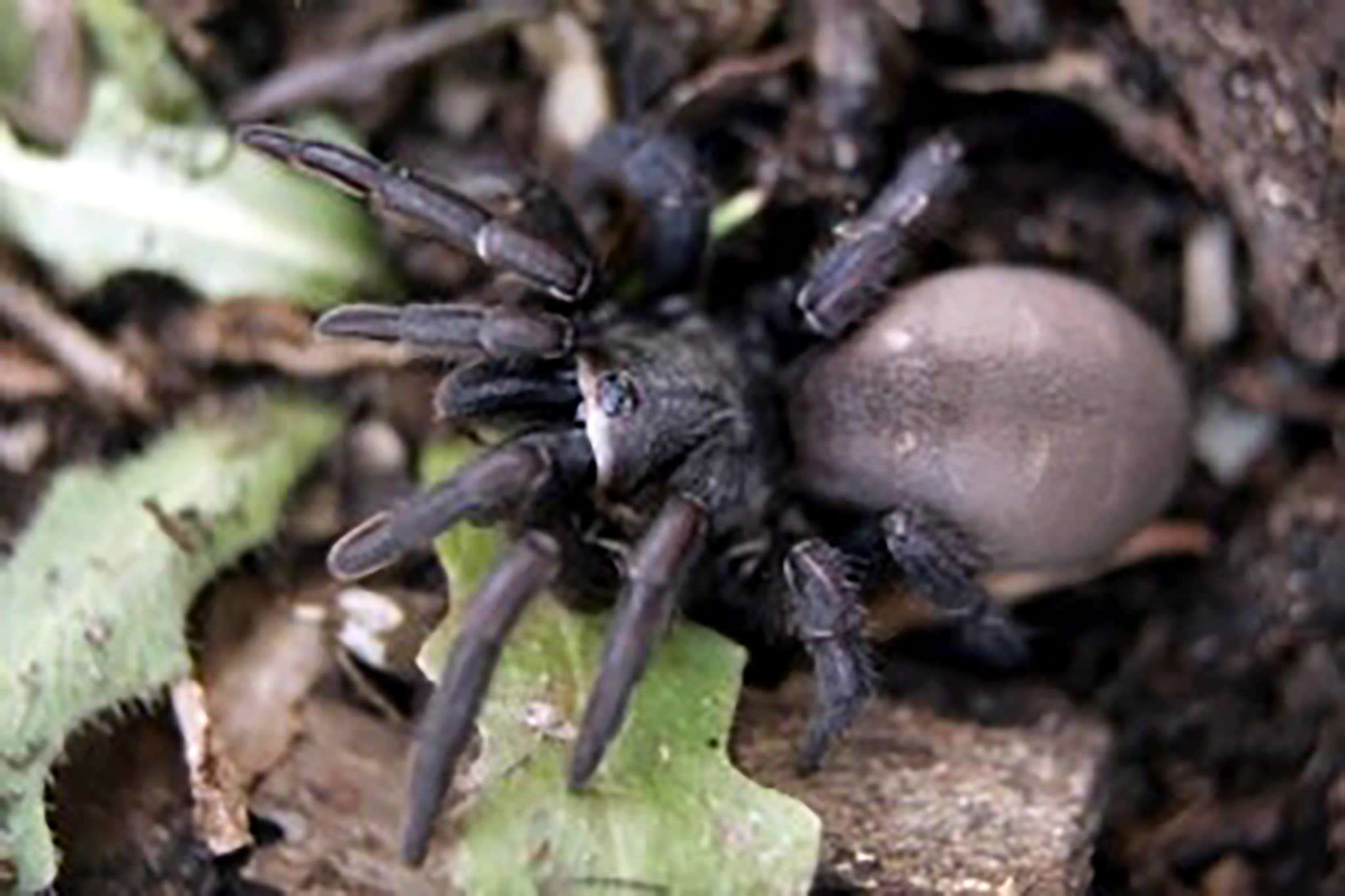
FUNNEL WEB SEASON IS HERE Galston, Glenorie & Hills Rural Community News FUNNEL WEB SEASON IS HERE
The Sydney Brown Trapdoor Spider lives in silk-lined burrows, which are commonly found in the lawns, gardens and bushland of Sydney.The Sydney Brown Trapdoor plays an important role in controlling ground-dwelling insects and other arthropods such as beetles, cockroaches, crickets, slaters, spiders and even moths that stray too near the burrow entrance.

Sydney brown trapdoor spider Misgolas rapax shaye byles Flickr
Sydney brown trapdoor spiders have thick but short bodies at only 3.5 centimeters. Their legs aren't much longer, usually ranging from 1.5-3 centimeters, depending on the legs. Females tend to have longer legs and a bigger body than their male counterparts, and their body is longer. Their body is much like the Sydney funnel-web spider, but it.

Trapdoor spiders The Australian Museum
Sydney Brown Trapdoor Spider Scientific Name: Misgolas rapax Often confused with the funnel-web spiders, the brown trapdoor can be distinguished by its chocolate brown coloration, less robust body and the presence of distinct boxing glove-shaped palps in the males (these are the appendages at the front of the head between the first pair of legs).

Sydney Brown Trapdoor Spider (Misgolas rapax Stock Photo Alamy
Trapdoor Spiders are a medium-sized mygalomorph (an infraorder of spiders), spiders that construct burrows with a cork-like trapdoor made of soil, vegetation and silk. The Trapdoor Spider is a common name for any of several large, hairy, harmless tropical spiders that nest underground.

Sydney Brown Trapdoor Spider
The Sydney brown trapdoor spider (Arbanitis rapax, synonym Misgolas rapax) is a spider in the family Idiopidae, found primarily around Sydney, Australia. It is usually shy and retiring and is often confused with the Sydney funnel-web spider, which is one of the most venomous spiders in the world.

Sydney Brown Trapdoor Spider (Misgolas rapax), Stock Photo, Picture And Rights Managed Image
The Sydney brown trapdoor spider ( Arbanitis rapax, synonym Misgolas rapax) is a spider in the family Idiopidae, found primarily around Sydney, Australia. It is usually shy and retiring and is often confused with the Sydney funnel-web spider, which is one of the most venomous spiders in the world. Contents Description Behavior Habitat Toxicity
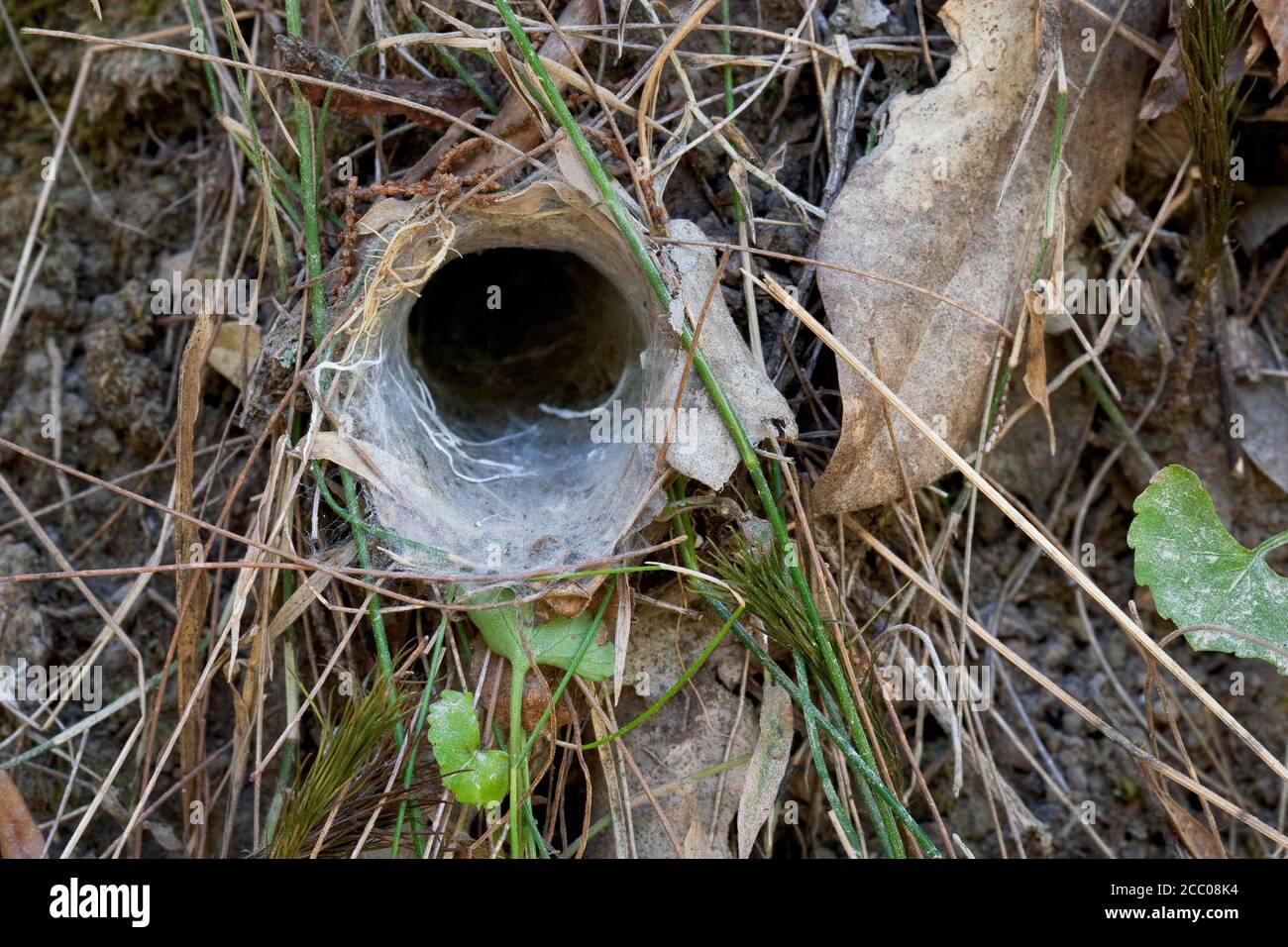
Brown trapdoor spider hires stock photography and images Alamy
Idiopidae and others Image credit: Joshua Prieto / Alamy Stock Photo There are hundreds of different spider species in Australia with the common name of trapdoor. Most are coloured brown or black and hairy, with a stocky build.

IMG_0328 Misgolas villosus (Sydney brown trapdoor spider);… Flickr
The Sydney brown trapdoor spider (Arbanitis rapax, synonym Misgolas rapax) is a spider in the family Idiopidae, found primarily around Sydney, Australia. It is usually shy and retiring and is often confused with the Sydney funnel-web spider, which is one of the most venomous spiders in the world.
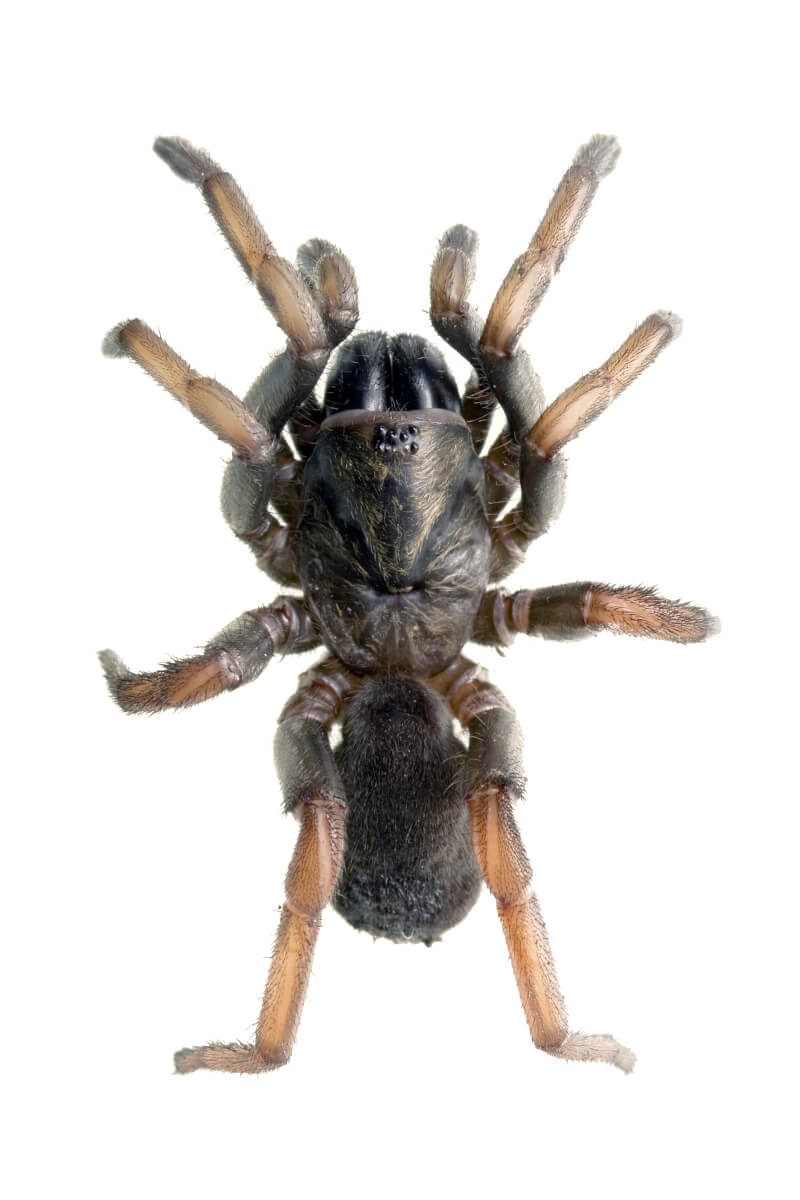
Trapdoor Spiders in Australia Fantastic Pest Control AUS
commonly known as the Sydney Brown Trapdoor Spider and regarded as widespread in the Sydney Region. However, its actual distribution is now shown to be confined to the Illawarra region south of Sydney. As part of the same work Rowell et al. determined the "Gerringong population" of " M. hubbardi" (now treated as M. rapax) to be a.

Sydney Brown Trapdoor Spider The Australian Museum
The brown trapdoor spider, and the most popularly known spider, is primarily found around Sydney, Australia. This spider is often mistaken for the far more dangerous Funnel-Web Spider due to similar identifying features such as being both large, dark, and rather stubby with a hairy coat. These spiders are common in gardens, and are found across.
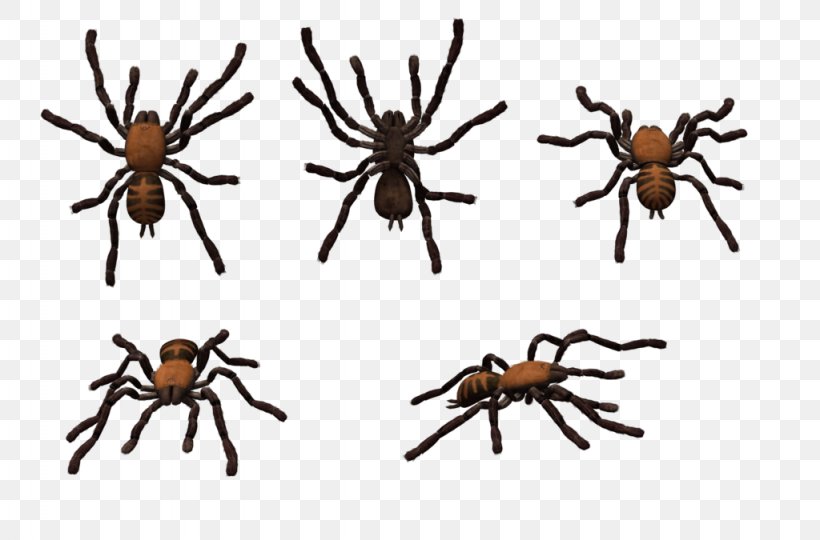
Tarantula Wolf Spider Widow Spiders Sydney Brown Trapdoor Spider, PNG, 1024x675px, Tarantula
Accept and close Most trapdoor spiders, but not all, are misleadingly named, as not all species make a door for their burrows. For those species that do, these highly camouflaged entrances are almost undetectable, unless the door is open.

Sydney brown trapdoor spider Misgolas rapax shaye byles Flickr
The Sydney Brown Trapdoor Spider lives in silk-lined burrows, which are commonly found in the lawns, gardens and bushland of Sydney. Identification. The Sydney Brown Trapdoor Spider's body has a dusty look about it, with golden brown hairs on the carapace (body) and greyish bars on the abdomen. The carapace is usually weakly arched in side profile.
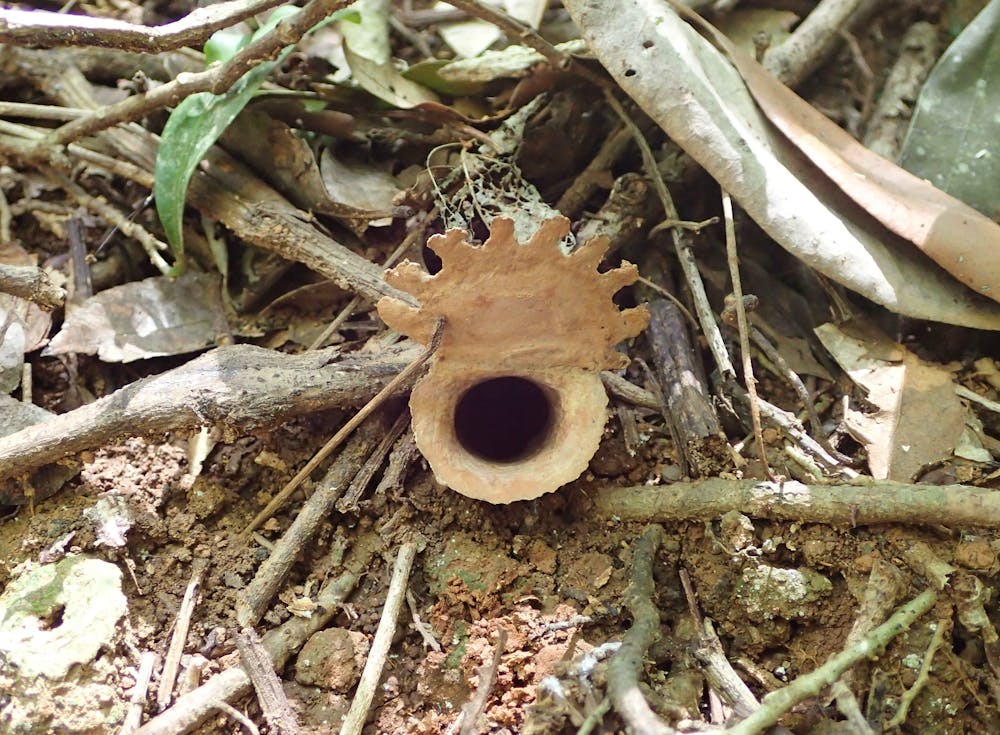
Here are 5 new species of Australian trapdoor spider. It took scientists a century to tell them
Nephila sp. 10 January 2022 Tasmanian Cave Spider Hickmania troglodytes Receive the latest news on events, exhibitions, science research and special offers. The first fossil from the brush footed trapdoor spider family ever found.
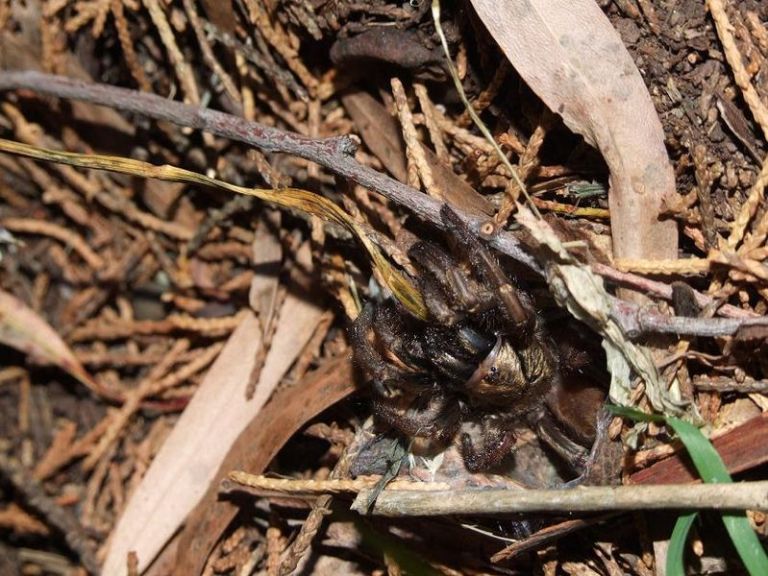
The thing on the ceiling Aroving I will go
Common Sydney spiders Spiders are a diverse group. Over 40,000 species have been identified in the world.. The home of the Sydney funnel web spider is often confused with that of the trapdoor spider, but the trapdoor spider burrow will often have a trapdoor whereas funnel web burrows will not.. They are mostly brown or grey, some are.
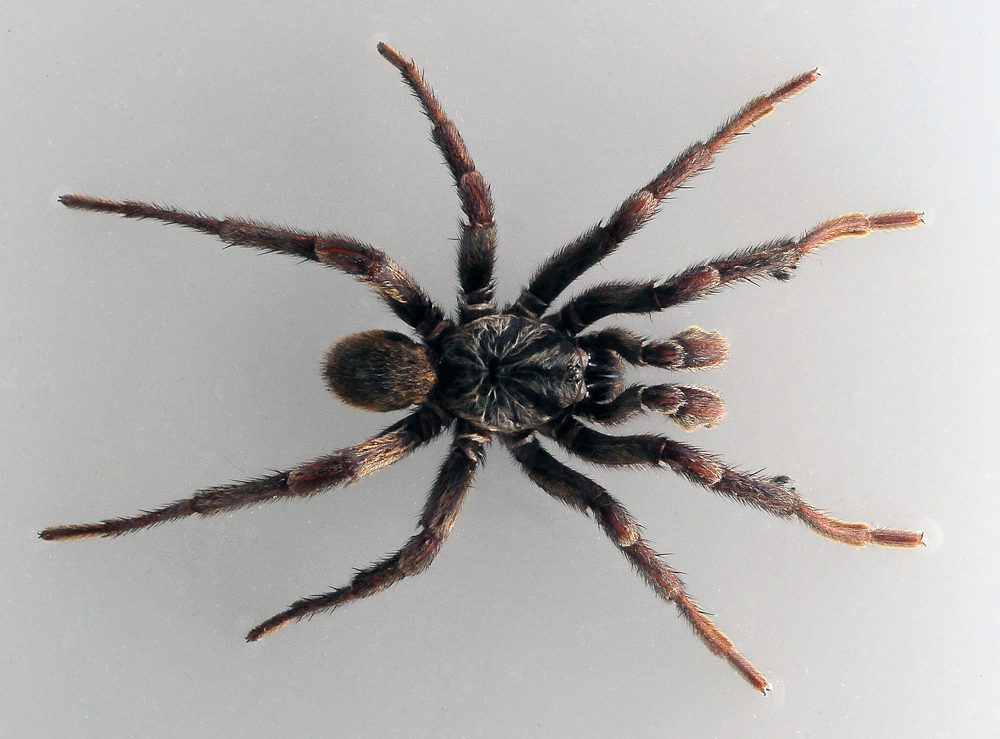
Trapdoor Spiders Facts, Venom & Habitat Information
Despite the fact that M. rapaxbehavior is influenced by feeding history, these spiders are apparentl y unable to adjust their behavior to the unpredictable fluctuations in prey availability, and there were no detectable patterns of relationship between habitat features and variation in M.Rapaxdensity. Burrow-associated behavior ofMisgolas rapax was observed in the field and laboratory . Spider.
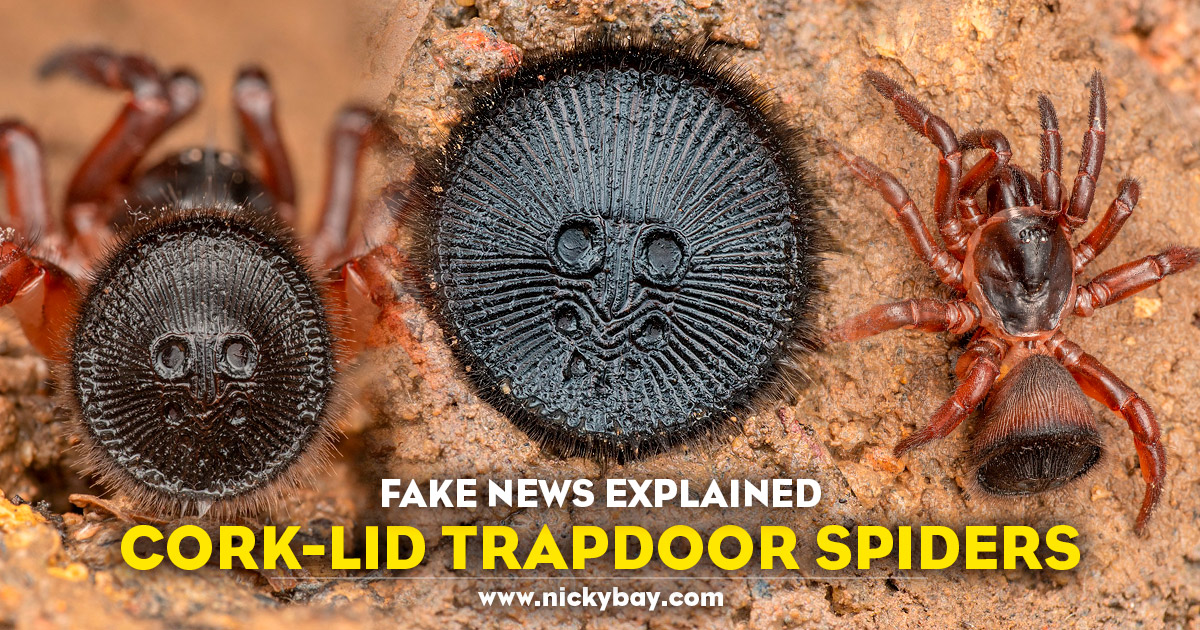
Trapdoor Spider
The Sydney brown trapdoor spider ( Arbanitis rapax, synonym Misgolas rapax) is a spider in the family Idiopidae, found primarily around Sydney, Australia. It is usually shy and retiring and is often confused with the Sydney funnel-web spider, which is one of the most venomous spiders in the world. Oops something went wrong: 403